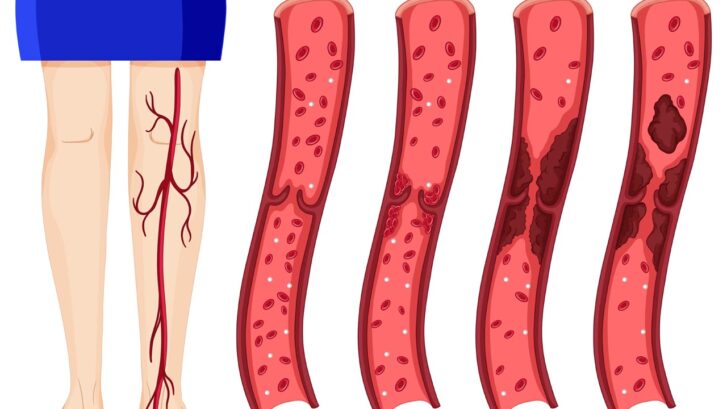Deep vein thrombosis (DVT) is a condition that can cause blood clots to form in the deep veins of your legs, which can be dangerous if left untreated. In this article, we’ll explore some of the most common symptoms of DVT and when to seek medical attention if you notice them.
Leg Pain and Swelling: Common DVT Symptoms
One of the most common symptoms of DVT is leg pain and swelling, usually in one leg. The sensation of pain caused by DVT can vary, from a persistent dull ache to a sudden and sharp stabbing pain. You may also notice that your leg is swollen, and it may feel warm to the touch. Immediate medical attention is crucial if you observe any of the symptoms mentioned above. Don’t hesitate to schedule an appointment with Dr. Ravul Jindal, an experienced vascular surgeon, to receive the proper diagnosis and treatment for DVT.
Redness and Warmth: Signs of Inflammation
Another sign of DVT is redness and warmth in the affected area. This is caused by inflammation and can be a sign that a blood clot has formed. If you notice any redness or warmth in your leg, especially if it is accompanied by pain and swelling, it’s important to seek medical attention.
Vein Tenderness: A Sign of a Blood Clot
If you have a blood clot in your leg, you may also experience vein tenderness. This means that the vein feels tender or painful when you touch it. If you experience vein tenderness along with other DVT symptoms, it’s important to seek medical attention right away.
Shortness of Breath and Chest Pain: Signs of a Pulmonary Embolism
If a blood clot breaks free from your leg and travels to your lungs, it can cause a serious condition called pulmonary embolism. Symptoms of a pulmonary embolism include shortness of breath, chest pain, and rapid heartbeat. If you experience these symptoms, it’s important to seek emergency medical attention immediately.
When to Seek Medical Attention for DVT Symptoms
If you experience any of the symptoms of DVT, it’s important to seek medical attention as soon as possible. Your doctor can perform tests to diagnose DVT and determine the best course of treatment. If you have any risk factors for DVT, such as a family history of blood clots, recent surgery or injury, or prolonged sitting or immobility, it’s important to be aware of the symptoms. Dr Ravul Jindal beholds years of experience at treating DVT and you may want to book your appointment before it is too late.
In conclusion, DVT can be a serious condition if left untreated. Do not ignore the signs of DVT. Act fast and seek medical attention to prevent serious complications. Contact us now to schedule an appointment with Dr Ravul Jindal and take control of your health today!


